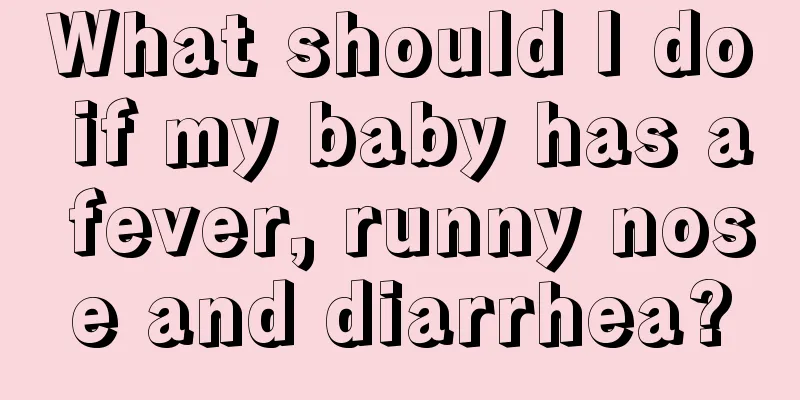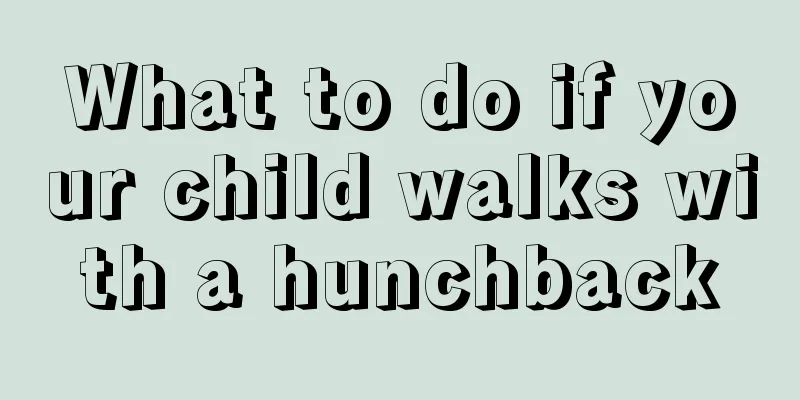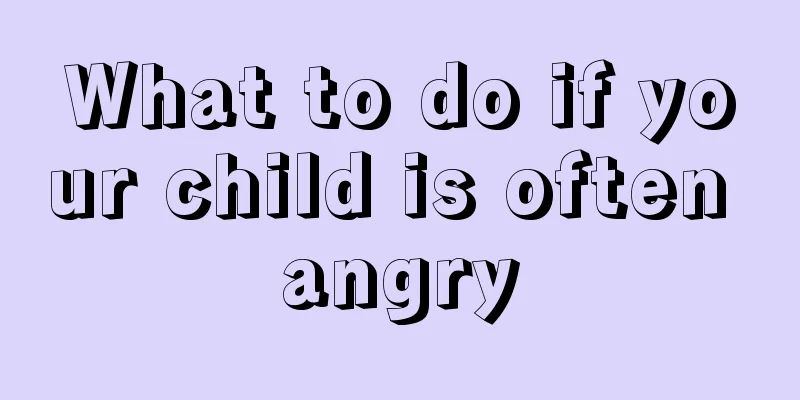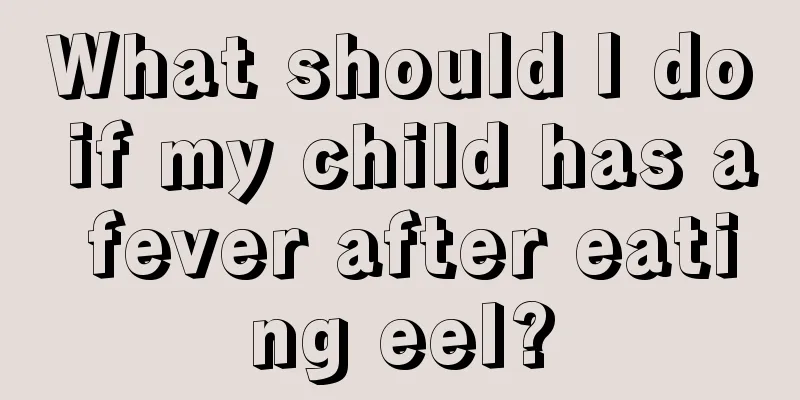What should I do if my baby has a fever, runny nose and diarrhea?

|
Babies often get sick due to poor resistance and other factors. Fever and runny nose are commonplace, and some also have diarrhea. Once a baby is sick, parents are like headless flies, losing their direction and not knowing what to do. They just blame themselves and blame themselves for not taking good care of the baby. In fact, this is useless for the baby's condition. Let's first look at what to do if the baby has a fever, runny nose, and diarrhea? Let’s learn more about it! When the baby's body temperature is greater than 38℃, it is called a fever. Generally speaking, fever will not cause harm to the baby's brain, so parents don't need to be overly nervous. As long as the baby is in good mental state and not drowsy, there is no need to send the baby to the hospital immediately. Parents only need to take the baby's temperature at any time and observe the changes in temperature. When the temperature rises above 38.5℃, you can give the child appropriate antipyretics and then go to the hospital for examination as soon as possible. Generally speaking, most fevers are caused by infection. The pathogens of infection may include bacteria, viruses, mycoplasma, etc., and the first two are the most common. It is recommended that you have your child do a routine blood test, which can roughly reflect whether the child is infected with bacteria or viruses, and then choose antibiotics or antiviral drugs based on the results. If your baby has a fever and diarrhea, it may be due to enteritis. You can take ceftriaxone suspension or berberine tablets for treatment under the guidance of a doctor. If the bowel movements are normal, it is recommended to take Mommy Love and Smecta for treatment. If you are adding complementary foods, you should stop adding them, or reduce the amount of complementary foods you add, and then resume gradually after your child gets better. In particular, avoid eating undigested food. In severe cases, intravenous fluid therapy is needed to avoid dehydration and electrolyte imbalance. Pay attention to replenishing water and salt in time. You can supplement with oral rehydration salts, or boiled water with some salt and sugar. Sugar can promote the absorption of water and salt. Now we know what to do when the baby has a fever, runny nose, and diarrhea. When the baby is sick, parents must not panic. It is useless to blame themselves, because we must first treat the baby. If the condition is serious, we need to go to the hospital in time so that we can control the condition. And many times, parents need to reflect on what they have not done well and correct it in time. |
<<: Why is my baby vomiting, having a fever and having diarrhea?
>>: What's going on when my baby has a fever, diarrhea and vomiting?
Recommend
What to do if your baby has diarrhea after changing milk powder
Babies basically stop drinking breast milk when t...
What causes children to vomit and have a fever? The earlier you know, the earlier you can prevent it!
If a child has symptoms of vomiting and fever, it...
What are the treatments for baby's oral ulcers?
When children are very young, their immune functi...
What are the psychological characteristics of 10-year-old children?
When children are around ten years old, they are ...
What is the reason for children's continuous vomiting?
Parents will become flustered if their children v...
Is it normal for baby's private parts to smell?
For young babies, parents need to take good care ...
What causes eczema on children’s buttocks?
Nowadays, children are vital to every family. So ...
How to fill children’s cavities?
The development of children's teeth is very i...
Will early development affect a girl’s height?
Children nowadays seem to be taller, mainly becau...
What causes intussusception in children?
Many parents will find that their children’s diet...
Can a one year old eat peaches?
A one-year-old baby should have been weaned, and ...
What to do if your child can't crawl
It takes time for a child to evolve from lying on...
How to treat baby's milk curds?
Every baby is the center of the whole family, esp...
What should children eat for oral ulcers? Four useful foods recommended
If children have oral ulcers, you can let them ea...
Why do children grind their teeth when they sleep at night?
Teeth grinding can be seen everywhere in our live...









